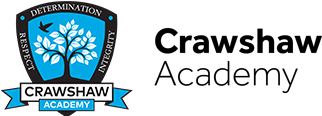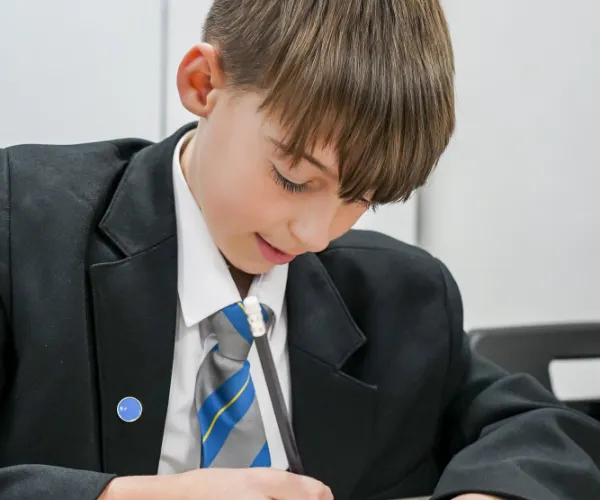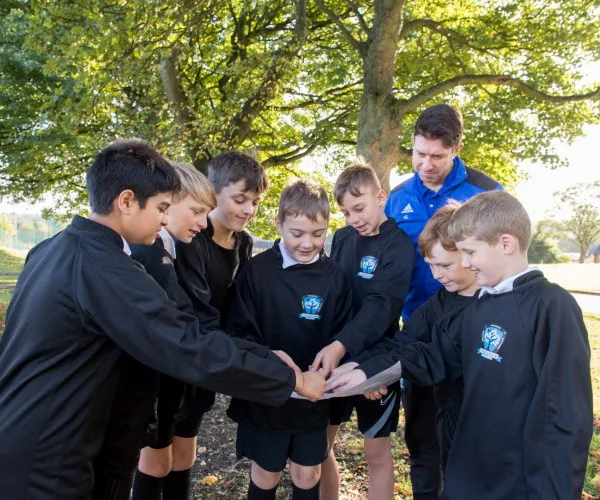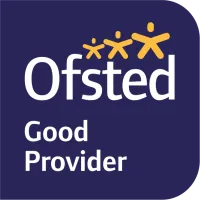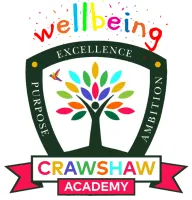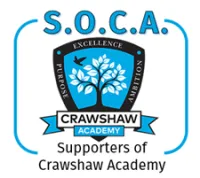- Exam Results
- Knowledge Organisers
- Year 11 Revision
- The Crawshaw Curriculum
- Key Stage 4 Study Support
- Personal Development
- Subjects
- Homework/Independent learning
- Remote learning
- Exams Information
- Learning Resource Centre
- Post 16 Provision
- Future Ready/CEIAG
- Post 16 Provision
Reading
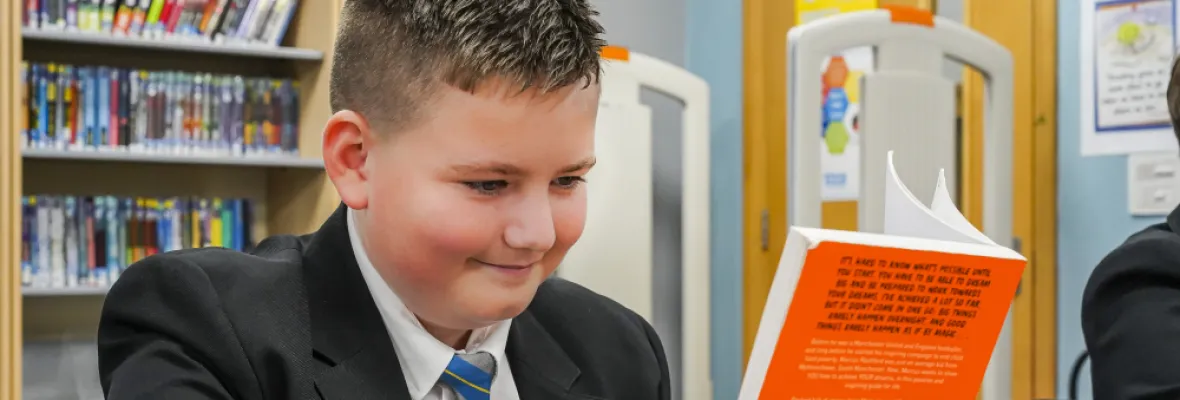
We place a high priority on reading at Crawshaw Academy. Our vision is for every student to be a reader.
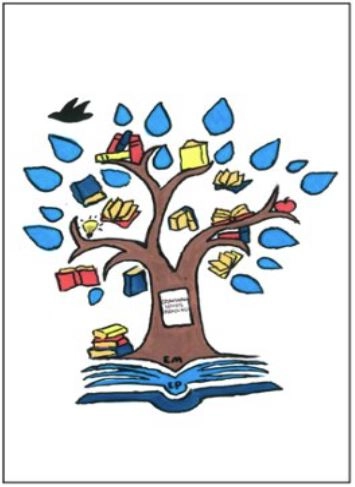
Students’ enjoyment of reading has been developed through the “Crawshaw Book Club” initiative.
The aims of Crawshaw Book Club are to:
- create a reading culture and engage our students in reading for pleasure
- model fluency
- broaden and embed new vocabulary
- complement our PSHE curriculum
- increase cultural capital
- provide students with the opportunity to talk about the books on offer.
Book Club runs four times per fortnight and is extract based. Session one introduces our students to the blurb and the new vocabulary; session two gives students the opportunity to re-visit the vocabulary and to watch the associated film trailer; session three allows students time to read through and discuss the extract; session four is an opportunity for students to discuss a key theme from the book.
After each fortnightly cycle, the books can be borrowed from the school library so that the whole stories can be read and enjoyed.
To foster the love of reading for pleasure, a wide range of enrichment opportunities are open to our students. These include:
- The annual celebration of World Book Day
- Author visits for both KS3 and KS4
- A range of competitions and rewards
- After-school book clubs
- The creation of reading podcasts and videos
- Reading Festival for our Year 6 schools in the community
Reading Lessons
One hour Reading lessons are scheduled fortnightly for our KS3 students (in Year Nine, these are part of the English curriculum).
The intention of the Reading lesson is to foster in our students a wider interest in reading. Reading then empowers them to become more articulate, confident speakers and writers. Another aim of the Reading lesson is to provide students with the opportunity to practise their reciprocal reading skills so that they are more able to access challenging texts across the curriculum.
In each lesson, students:
- Have fifteen minutes to read independently and to borrow a book from a wide range of fiction and non-fiction (covering all genres and forms).
- Spend forty-five minutes reading through a fiction or non-fiction extract as a class. Students have the opportunity to listen to the teacher's fluent reading, make predictions, and summarise and discuss the content of the text. Students also clarify the meanings of new words through the use of a range of strategies.
Intervention for struggling readers
Alongside our curriculum and literacy toolkit, we provide appropriate interventions to strengthen our student’s learning and ensuring extra support is given where required.
Academic Vocabulary (Tier 3 terminology)
Across the curriculum, we ensure that academic words and phrases are explicitly taught so that students are able to use them confidently in a variety of contexts.
Strategies that a teacher may use to embed a word include:
- Saying the word out loud to see if it sounds more familiar
- Considering the prefix, suffix or the root of the word
- Considering word class (noun, verb, adjective)
- Reading the whole sentence, again, to see if the word could be replaced by another
- Considering the purpose of the text and the perspective of the author.
- Exam Results
- Knowledge Organisers
- Year 11 Revision
- The Crawshaw Curriculum
- Key Stage 4 Study Support
- Personal Development
- Subjects
- Homework/Independent learning
- Remote learning
- Exams Information
- Learning Resource Centre
- Post 16 Provision
- Future Ready/CEIAG
- Post 16 Provision
